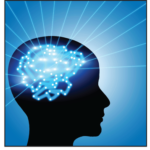 by Katie Steen, MD; Puneet Narang, MD; and Steven Lippmann, MD
by Katie Steen, MD; Puneet Narang, MD; and Steven Lippmann, MD
Dr. Steen is psychiatry resident at the University of Minnesota, Minneapolis; Dr. Narang is Staff Physician and Lead ECT Psychiatrist, Regions Hospital, Minneapolis-St. Paul, Minnesota; and Dr. Lippmann is Professor of Psychiatry, University of Louisville School of Medicine, Louisville, Kentucky.
Innov Clin Neurosci. 2015;12(7–8):28–30.
Funding: No funding was received for the preparation of this article.
Financial disclosures: The authors have no conflicts of interest relevant to the content of this article.
Key words: ECT, electroconvulsive therapy, multiple sclerosis, depression
Abstract: We performed a literature search regarding the safety and efficacy of electroconvulsive therapy in patients with multiple sclerosis and comorbid psychiatric symptoms. Literature review was conducted via PubMed databases. Of the cases we reviewed, most subjects with multiple sclerosis reported significant psychiatric symptom relief, with only a handful reporting neurologic deterioration. There was some evidence that active white matter lesions may be predictive of neurologic deterioration when electroconvulsive therapy is used in patients with multiple sclerosis. A brief description of the pathophysiology and effects of depression in patients with multiple sclerosis is also provided. Although no clinical recommendations or meaningful conclusions can be drawn without further investigation, the literature suggests that electroconvulsive therapy for treatment of psychiatric illnesses in patients with multiple sclerosis is safe and efficacious.
Introduction
Electroconvulsive therapy (ECT) is recognized as efficacious for treatment-refractory depression, mania, catatonia, and schizophrenia.1 Additionally, it is sometimes indicated for patients with status epilepticus, neuroleptic malignant syndrome, dementia with agitation, and Parkinson’s disease.[1] In the general population, the risks associated with ECT are low, similar to that associated with anesthesia.[2] However, there are no large trials reported or other literature analyzing the risk associated with ECT in patients with neurodegenerative disorders such multiple sclerosis (MS), Huntington’s disease, amyotrophic lateral sclerosis, multiple system atrophy, or Alzheimer’s disease.
Given the neurologic deterioration seen in these disorders, there is legitimate concern that an ECT-induced seizure might have adverse effects on an already damaged nervous system. Additionally, people with these diseases having cognitive dysfunction are at increased risk for further deterioration by administering ECT.[2]
The purpose of this article was to review and discuss the available literature for evidence regarding the efficacy and safety of ECT in the treatment of psychiatric illness in patients with MS. A brief description of the pathophysiology and effects of depression on patients with multiple sclerosis is also provided.
Method
A PubMed search was performed using the term electroconvulsive therapy and multiple sclerosis, yielding 19 total results. We selected the articles that detailed the effects of ECT on patients with MS?and any psychiatric illness. Of these results, there were only two original case reports and a 2007 review article of 17 case reports. Of those 17 case reports included in the review article, three were discussed at length by the authors and the remaining 14 were summarized. We also reviewed the case reports from the review article that were electronically accessible in their entirety. Additionally, we selected and reviewed several articles that were found via the PubMed databases using the search term multiple sclerosis and depression for background information.
Background: Depression and MS
MS is an immune-mediated inflammatory disorder resulting in destruction of oligodendrocytes with nerve demyelination. Multifocal lesions of the central nervous system white matter characterize this disease. The physical symptoms of MS are well established: patients experience neurologic dysfunction resulting in autonomic, sensory, visual, and/or motor deficits.[3–5] Beyond the physical disabilities associated with MS, psychiatric dysfunction is also noted: between 40- and 60-percent of individuals with MS report depressive and anxiety complaints.[3] An increase in incidence of bipolar disorder has also been noted in people with MS.[4] Suicide rates are higher as well.[5]
The elevated incidence of depression in MS has several explanations. Depression may be a direct result of neurodegenerative pathology, with neuronal damage causing the mood disorder. Depression is more common in persons with lesions in their brains as opposed to those with lesions only in their spinal cords.[6,7] Frontal and temporal lesions associated with reduced brain tissue volume are also correlated with depression.[5,6]
A decrease in the quality of life in patients with MS is also associated with depression. The same applies to pain, fatigue, and/or cognitive impairments related to the presence of MS.[7–10]
Depression might also be the result of or worsened by interferon-beta, a standard therapy for MS.[5,11] However, one investigation confoundingly revealed that neither interferon-beta nor glatiramir acetate had any negative effect on mood symptoms in patients with relapsing-remitting MS.
The high rates of depression in patients with MS are likely to reflect an interaction of the above factors; yet, to date, there is no neurobiological explanation. The relationship between MS, depression, and their treatments remains to be clarified. Thus, for now, the treatment for depression in patients with MS utilizes the same guidelines as the general population.[12] The American Academy of Neurology states that it cannot support or refute the efficacy of any known antidepressant medication or cognitive behavioral therapy.[12] There are no existing data on ECT for treatment-refractory depression comorbid with MS.
ECT and MS: A Review of Case Reports
According to Mattingly et al,[13] magnetic resonance imaging (MRI) scans in an MS patient undergoing ECT evidenced a correlation between the existence of gadolinium-enhancing lesions at baseline and heightened risk for new neurologic dysfunction after ECT. The authors of this case report cite several studies implicating disruption of the blood brain barrier as a risk factor for neurologic decompensation during ECT. Because gadolinium-enhancing lesions (a sign of active MS plaques) have demonstrated increased permeability in the blood brain barrier, the authors hypothesize that gadolinium-enhancing lesions may prove to be a contraindication to ECT, and recommend obtaining a baseline MRI before administration of ECT in patients with MS.[13]
A 2007 review by Rasmussen et al[14] of ECT performed on patients with MS documented 17 case reports since 1951. Among the three case reports described in detail by Rasmussen et al,[14] there was no documented evidence that a decrease in neurologic functioning occurred. All three cases reported significant mood improvement despite varied severity in the MS courses and pre-treatment neurologic functioning. However, little long-term follow-up was described. Without such data, it is impossible to assess the potential late-effect neurologic deficits that could arise from ECT treatment in patients with MS. All three cases were women, and their ages ranged from 23 to 61 years.
Of the remaining 14 cases that were summarized by Rasmussen et al,[14] only a handful reported deterioration of neurologic status; however, these reports afford no conclusive impressions about ECT safety or efficacy in people with MS. Very few of the reviewed case reports included pre- and post-treatment MRI imaging; without this, it is impossible to address the possibility of new brain lesions.
In the two case reports we reviewed describing patients with MS and comorbid psychiatric illness who received ECT treatment, the conclusions were conflicting.[15,16] One patient, a 28-year-old man with MS?and recurrent catatonia, was successfully treated with ECT and developed no neurologic deficits.[15] However, the other case, a male patient with MS?and psychotic depression, experienced a grand mal seizure following his 14th ECT treatment, and the course of ECT was subsequently halted.[16]
Conclusion
ECT appears to be efficacious in treating psychiatric illness in patients with MS.[14,15] Published cases document improvement in psychiatric symptoms;[14,15] yet data regarding neurologic deterioration following ECT are not clear.[14–16] There is no pattern in ECT’s potential for deleterious effects. In the reviewed literature, patients that displayed loss of neurologic function induced by ECT were of different ages, had varied levels of neurodegeneration, and dissimilar neuropsychiatric presentations. There was no correlation between symptom severity and laterality of ECT electrode placement. Thus, decisions to select ECT for treating co-existing psychiatric disorders and MS must be made on an individualized basis that involves risk-versus-benefit discussions with patients.
In addition to MS, other neurodegenerative disorders are also associated with depression and increased suicide rate.[3–5] The literature analyzing ECT outcomes or sequelae in these patients is sparse and without clear findings or recommendations. Clearly, further research into use of ECT for treatment of psychiatric illness in patients with MS and other neurodegenerative disorders is needed before firm conclusions can be drawn regarding its safety.
References
1. American Psychiatric Association. The Practice of ECT: Recommendations for Treatment, Training, and Privileging. Washington, DC: American Psychiatric Press, Inc.; 2001.
2. Fink M, Taylor MA. Electroconvulsive therapy: evidence and challenges. J Am Med Assoc. 2007;298(3):330–332.
3. Chwastiak L, Ehde DM, Gibbons LE, et al. Depressive symptoms and severity of illness in multiple sclerosis: epidemiologic study of a large community sample. Am J Psychiatry. 2002;159:1862–1868.
4. Carta MG, Moro MF, Lorefice L, et al. The risk of bipolar disorder in multiple sclerosis. J Affect Disord. 2014;155:255–260.
5. Pompili M, Forte A, Palermo M, et al. Suicide risk in multiple sclerosis: a systematic review of current literature. J Psychosomat Res. 2012;73(6):411–417.
6. Kirzinger SS, Jones J, Siegwald A, et al. Relationship between disease-modifying therapy and depression in multiple sclerosis. Int J MS Care. 2013;15(3):107–12.
7. Rabins PV, Brooks BR, O’Donell P, et al. Structural brain correlates of emotional disorder in multiple sclerosis. Brain. 1986;109:585–597.
8. Bieske AG, Svensson E. Depression and anxiety amongst multiple sclerosis patients. Eur J Neurol. 2008;15:239–245.
9. Sadovnic AD, Remick RA. Depression and multiple sclerosis. Neurology. 1996;46(3):628–632.
10. Amato MP, Ponziani G, Rossi F, et al. Quality of life in patient’s with multiple sclerosis: the impact of depression, fatigue, and disability. Multiple Sclerosis Journal. 2001;7(5):340–344.
11. Arnett PA, Randolph JJ. Longitudinal course of depression symptoms in multiple sclerosis. J Neurol Neurosurg Psychiatry. 2006;77:606–610.
12. Minden SL, Feinstein A, Kalb RC, et al. Evidence-based guideline: assessment and management of psychiatric disorders in individuals with MS: report of the Guideline Development Subcommittee of the American Academy of Neurology. Neurology. 2014;82(2):174–181.
13. Mattingly G, Baker K, Zorumski CF, et al. Multiple sclerosis and ECT: possible value of gadolinium-enhanced magnetic resonance scans for identifying high risk patients. J Neuropsychiatry Clin Neurosci. 1992;4:145–151.
14. Rasmussen KG, Keegan BM. Electroconvulsive therapy in patients with multiple sclerosis. J ECT. 2007;23(3):179–180.
15. Pontikes TK, Dinwiddie SH. Electroconvulsive therapy in a patient with multiple sclerosis and recurrent catatonia. J ECT. 2010;26(4):270–271.
16. Urban-Kowalczyk M, Rudecki T, Wroblewski D, et al. Electroconvulsive therapy in patient with psychotic depression and multiple sclerosis. Neurocase. 2014;20(4):452–455.





